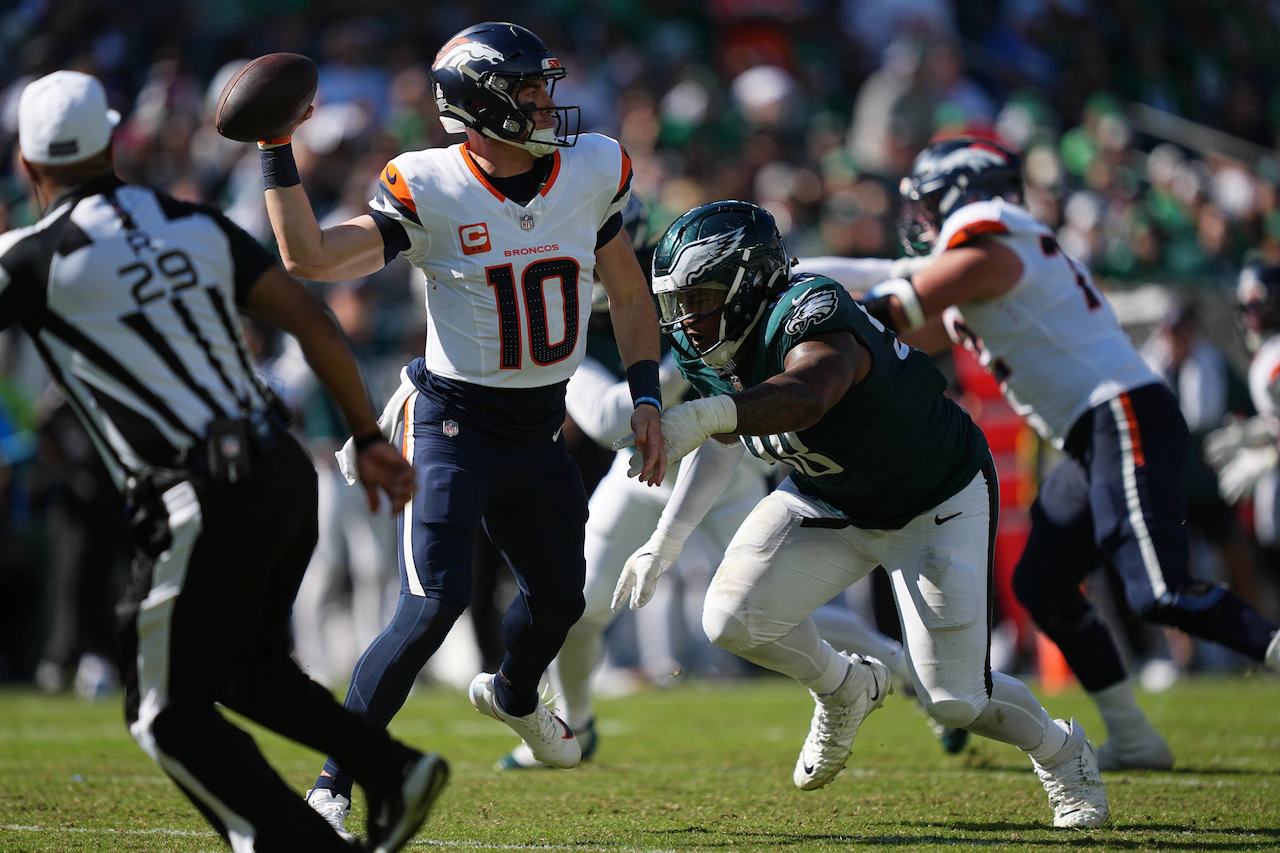‘Trap games don’t exist”: Bo Nix explains why this popular NFL narrative is actually disrespectful

CLEVELAND, Ohio — In a league where narratives drive endless debate, few concepts are as firmly entrenched in NFL culture as the “trap game”—that supposedly dangerous matchup against an underwhelming opponent sandwiched between high-profile contests.
But if you ask Denver Broncos quarterback Bo Nix, the entire concept deserves to be thrown in the trash.
On Wednesday, Nix didn’t mince words when asked about the possibility of overlooking a winless opponent, delivering a perspective that challenges conventional fan wisdom about how NFL players approach their schedule.
“Well, I think in the league, quite honestly, it’s a little disrespectful to consider anybody a trap team,” Nix stated firmly.
It’s a refreshing dose of reality from a quarterback who, despite being a rookie, brings the perspective of someone who has weathered countless high-pressure situations across his extensive college career.
The “trap game” theory suggests that players might unconsciously take certain opponents lightly—a concept that makes for great sports talk fodder but apparently doesn’t align with the professional mindset inside NFL buildings.
Nix’s blunt assessment strips away the comfortable narratives fans lean on to explain unexpected results.
What makes his perspective particularly valuable is his explanation of the NFL’s extreme parity.
“I think any game you can walk in and slip up and lose, that’s just the league,” Nix continued. “So, if you’re not careful, in a way all of them could be because they’re that good of an opponent.”
This reality check highlights the disconnect between how fans perceive NFL matchups and how players must approach them.
While fans and analysts might see a 5-0 team facing an 0-5 opponent as a guaranteed win, players see eleven professional athletes across the line of scrimmage who are fighting for their careers, pride, and livelihoods every single snap.
Nix went on to emphasize that record alone doesn’t tell the full story of an NFL team’s capabilities.
“They’re a good football team. They’ve been close on some games. They’re a couple walk-off plays away from having two or three wins,” Nix said.
His point underscores how thin the margins are between victory and defeat at the professional level, where a handful of plays often determine outcomes regardless of perceived talent disparities.
This perspective also sheds light on why upsets happen routinely in professional football.
When every player on the field is among the elite 1% of football talent in the world, the difference between winning and losing often comes down to preparation, focus, and execution—not simply talent gaps between rosters.
For fans who love to debate “look-ahead games” and “letdown spots,” Nix’s comments serve as a reminder that NFL players simply cannot afford to adopt such a casual approach to any opponent.
The consequences of doing so are too severe in a league where careers are short and every game counts significantly toward playoff positioning